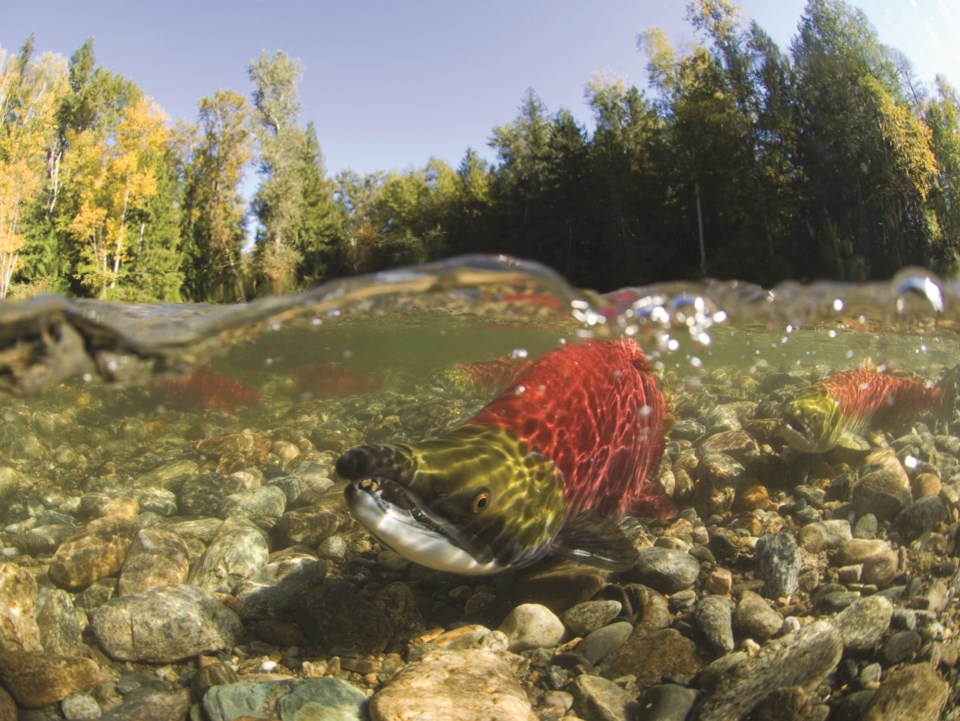They came—to Vancouver, in early February for a week. Thousands of delegates and dignitaries from 123 countries with the aim of protecting oceans around the world.
They saw—one of the most beautiful harbours, and cityscapes, right outside their meeting rooms in the Vancouver Convention Centre, where many a hopeful “green” conference has been held over the years. That includes the hydrogen fuel cell gathering in the year of the mighty 2010 Winter Games—an event that celebrated zero-emission hydrogen fuel cells, including the most successful commercial ones on Earth (Ballard’s made-in-B.C. fuel cells, which once powered buses at Whistler) along with the “Hydrogen Highway” from California to Vancouver that, while facing many detours, still hasn’t quite hit a dead end.
And while they didn’t exactly “conquer,” those thousands and thousands of delegates did leave feeling positive they’ll make a big difference. Maybe they’ll become something B.C.’s Indigenous people have long exalted—a good ancestor.
It was all part of the fifth International Marine Protected Areas Congress (IMPAC5) to conserve the world’s oceans. Falling on the heels of December’s very successful UN Biodiversity Conference in Montreal, where a landmark agreement was struck to protect biodiversity and slow the extinction of species around the world, some attending the IMPAC5 congress realized they could build on the good work done there—and even come up with something better.
As a spokesperson for the Canadian Parks and Wilderness Society, one of the conference’s co-hosts told the Vancouver Sun the marine congress was an opportunit“to take those global biodiversity framework commitments that were agreed to in Montreal and dig down into how we do that.”
One of the plans to protect marine biodiversity that generated the most excitement, and will be key to Canada fulfilling its goal of protecting 30 per cent of its marine waters (international waters are another story), will happen right here in B.C.
Leaders from 15 First Nations, joining forces as the Coastal First Nations, presented plans for the Great Bear Sea marine protected area, a huge swath of 10 million hectares of ocean on B.C.’s central coast alongside the Great Bear Rainforest. It stretches from northern Vancouver Island, and up the North Coast to Nass, encompassing the waters around Haida Gwaii.
“This is one of the richest and most productive ecosystems left in the world, and we should be very proud of that,” Christine Smith-Martin, executive director of the Coastal First Nations, told The Guardian. “Salmon, bears, wolves, and whales, kelp forests and ancient cedars; it is also a home to all of our people in our traditional territories. First Nations’ stewardship of these lands and seas dates back more than 14,000 years—we can take care of our territories.”
The huge, comprehensive plan for the Great Bear Sea marine protected area is called a “mindset shift” for conservation. Thank goodness support for it went beyond First Nations: Federal and provincial leaders are solidly behind it, and a good thing, too.
Wild Pacific salmon stocks have collapsed, especially with climate ravages, like last summer’s scorching drought that I wrote about here in Pique in October. Eulachon, prized for their oil, as well as Dungeness crab and rockfish, are in dire straits, too. In the Yukon, Indigenous communities who once lived on wild salmon now have to import frozen fish.
I hope for everyone’s sake that the Coastal First Nations’ plan doesn’t stay that way—a plan. After it does become “the change we wish to see,” maybe they can help out with that 13-year-old equally good, but faltering plan for a genuine hydrogen economy.
It all starts with a good thought
As for being a good ancestor, pick up a copy of the book explaining how you do it. Be a Good Ancestor, by Leona Prince and Gabrielle Prince, is based on Indigenous values around the environment; all creatures great and small that live in it; self-esteem and self-respect; and the importance of building community. (Whistler Public Library has a copy.)
Leona is a member of the Lake Babine Nation and Likh Tsa Mis Yu Clan and has been a leader and educator in the North for years, most recently as director of instruction-Indigenous education in the Nechako Lakes School District near Prince George.
You, me, anyone can become a good ancestor, and it all starts with our thoughts. Thoughts become actions, then actions become movements. And movements become change.
All this might remind you of the quote “Be the change you wish to see” that has been floating around pop culture for years. It is attributed to the revolutionary leader of one of the largest non-violent independent movements in the world, and overall ethicist and spiritual leader, Mohandas Karamchand Gandhi—better known as Mahatma Gandhi.
I hate to remind you, but that popular bumper-sticker quote, like so much on social media, ain’t real.
According to Brian Morton, the director of the graduate program in fiction at Sarah Lawrence College who is an expert on pop culture’s false quotes, there’s no reliable documentation of what Gandhi actually said. But the best verifiable record we have is this, which is even better:
“If we could change ourselves, the tendencies in the world would also change. As a man changes his own nature, so does the attitude of the world change towards him ... We need not wait to see what others do.”
I do believe that’s exactly what the Coastal First Nations are doing.
Glenda Bartosh is an award-winning journalist who urges you to do what you can to protect our vast and mysterious seascapes.




